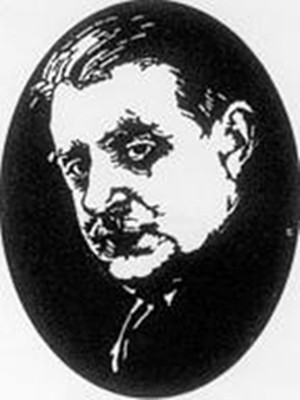They were pushed aside.
他們被推到一旁,
They complained of their lot.
嘴里還抱怨自己的命運(yùn)不濟(jì),
They bewailed the ingratitude of their children, but when the last wagon pulled out of the village, they stopped the driver and forced him to take them along.
詛咒孩子們忘恩負(fù)義。下過(guò),最后一輛馬車(chē)駛出村子時(shí),他們叫住了車(chē)夫,強(qiáng)迫他把他們帶走。
The flight into the unknown had begun.
這樣,投奔陌生世界的旅程開(kāi)始了。

It was many years since the Wanderer had returned.
離那個(gè)漫游者回來(lái)的時(shí)間,已經(jīng)過(guò)了很多年,
It was no easy task to discover the road he had mapped out.
所以要找到他開(kāi)辟的道路并非易事。
Thousands fell a victim to hunger and thirst before the first cairn was found.
成千上萬(wàn)人死了,人們踏著他們的尸骨,才找到第一座用石子堆起的路標(biāo)。
From there on the trip was less difficult.
此后,旅程中的磨難少了一些。
The careful pioneer had blazed a clear trail through the woods and amidst the endless wilderness of rock.
那個(gè)細(xì)心的先驅(qū)者已經(jīng)在叢林和無(wú)際的荒野亂石中用人燒出了一條寬敞大道。
By easy stages it led to the green pastures of the new land.
它一步一步把人們引到新世界的綠色牧場(chǎng)。
Silently the people looked at each other.
大家相視無(wú)言。
He was right after all, they said. He was right, and the Old Men were wrong…
歸根結(jié)底他是對(duì)了,人們說(shuō)道。他對(duì)了,守舊老人錯(cuò)了。
He spoke the truth, and the Old Men lied…
他講的是實(shí)話(huà),守舊老人撒了謊…
His bones lie rotting at the foot of the cliffs, but the Old Men sit in our carts and chant their ancient lays…
他的尸首還在山崖下腐爛,可是守舊老人卻坐在我們的車(chē)?yán)铮切├系粞赖母枳印?/p>
He saved us, and we slew him…
他救了我們,我們反倒殺死了他。
We are sorry that it happened, but of course, if we could have known at the time…
對(duì)這件事我們的確很內(nèi)疚,不過(guò),假如當(dāng)時(shí)我們知道的話(huà),當(dāng)然就…
Then they unharnessed their horses and their oxen and they drove their cows and their goats into the pastures and they built themselves houses and laid out their fields and they lived happily for a long time afterwards.
隨后,人們解下馬和牛的套具,把牛羊趕進(jìn)牧場(chǎng),建造起自己的房屋,規(guī)劃自己的土地。從這以后很長(zhǎng)時(shí)間,人們又過(guò)著幸福的生活。
A few years later an attempt was made to bury the brave pioneer in the fine new edifice which had been erected as a home for the Wise Old Men.
幾年以后,人們建起了一座新大廈,作為智慧老人的住宅,并準(zhǔn)備把勇敢先驅(qū)者的遺骨埋在里面。
A solemn procession went back to the now deserted valley, but when the spot was reached where his body ought to have been, it was no longer there.
一支肅穆的隊(duì)伍回到了早已荒無(wú)人煙的山谷。但是,山腳下空空如也,先驅(qū)者的尸首蕩然無(wú)存。
A hungry jackal had dragged it to his lair.
一只饑餓的豺狗早己把尸首拖入自己的洞穴。
A small stone was then placed at the foot of the trail (now a magnificent highway).
人們把一塊小石頭放在先驅(qū)者足跡的盡頭(現(xiàn)在那已是一條大道),
It gave the name of the man who had first defied the dark terror of the unknown, that his people might be guided into a new freedom.
石頭上刻著先驅(qū)者的名字,一個(gè)首先向未知世界的黑暗和恐怖挑戰(zhàn)的人的名字,他把人們引向了新的自由。
And it stated what it had been erected by a grateful posterity.
石上還寫(xiě)明,它是由前來(lái)感恩朝禮的后代所建。
As it was in the beginning-as it is now-and as some day (so we hope) it shall no longer be.
這樣的事情發(fā)生在過(guò)去,也發(fā)生在現(xiàn)在,不過(guò)將來(lái)(我們希望)這樣的事不再發(fā)生了。











